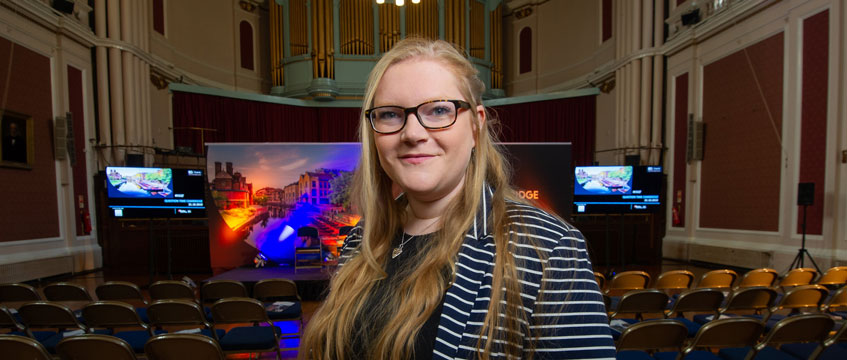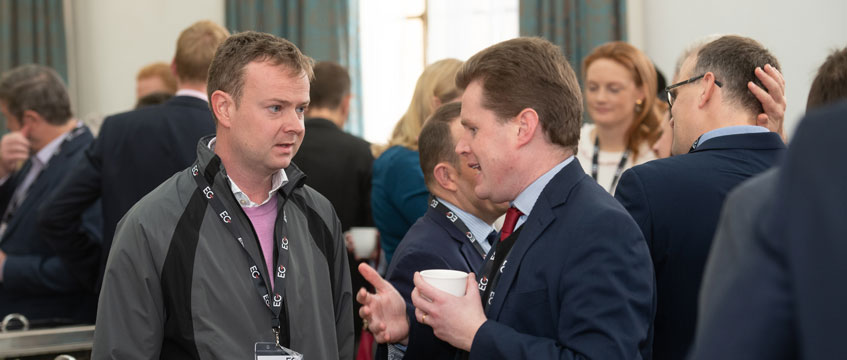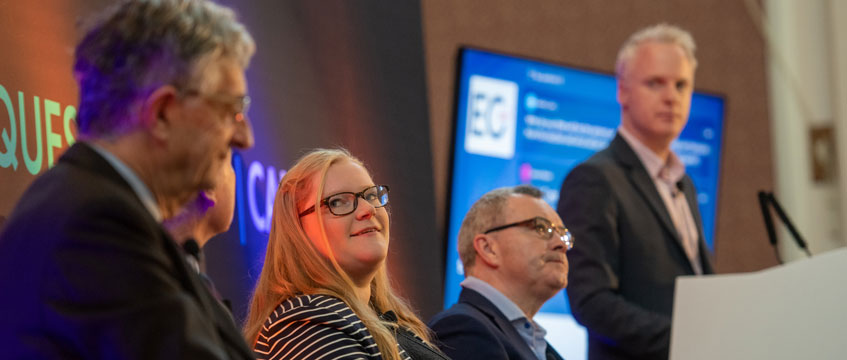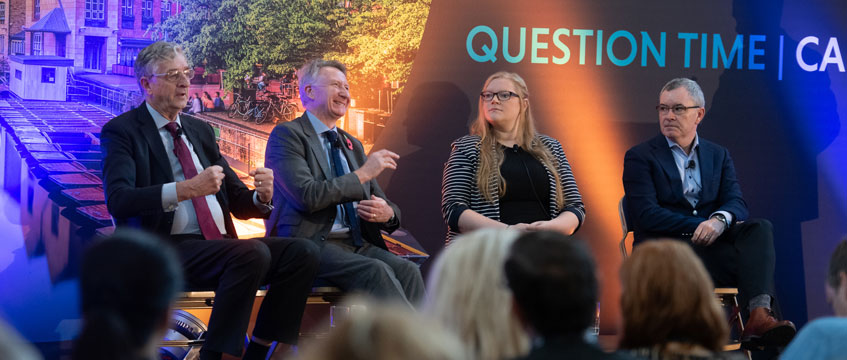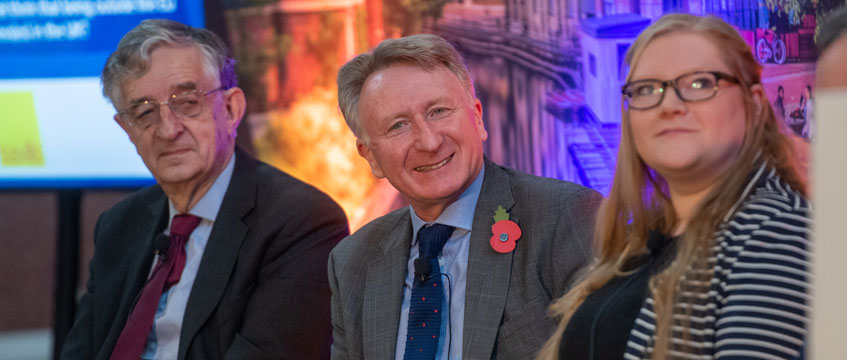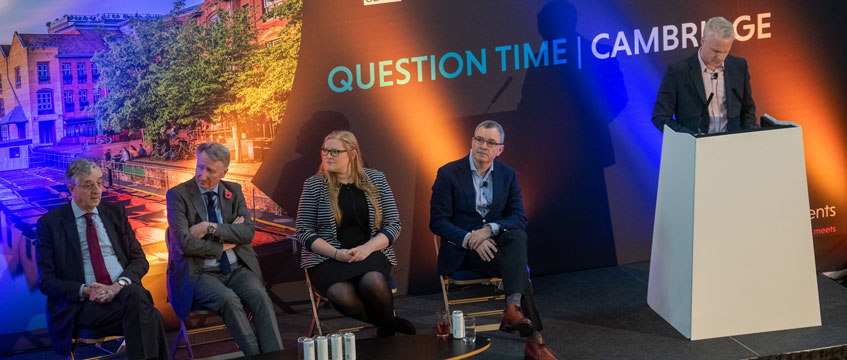It was supposed to be a historic day, but Boris Johnson’s “do or die” motto was well and truly dead by the time panellists arrived at EG’s Question Time in Cambridge on 31 October.
However, Brexit still managed to dominate the debate, with Brexiteer Dr Graham Gudgin, chief economic adviser at Policy Exchange, pitted against remainer Harri John, co-founder of CREation Property Network (pictured).
Gudgin declared that the negative impacts of Brexit had been “hugely exaggerated”, adding that in Cambridge “life will go on”, while John said the current uncertainty was deeply unsettling for both her own firm and her day job as a consultant to Mitie.
“A lot of my youngest members didn’t have a chance to vote in the referendum,” said John. “In my day job as a consultant I advise occupiers on real estate strategy and Brexit is holding people back. Real estate decisions happen over 10 years but we have no idea what the country will look like in 10 years’ time.”
For the property sector in Cambridge and beyond, the stalemate around Brexit continues to keep many investors hovering on the sidelines.
As David Henry, planning director at Savills, pointed out: “I think it will be at least another year before the dust settles, and that’s where the uncertainty lies: do investment decisions become deferred? Do people take different investment decisions than they would have done otherwise?”
On a more optimistic note, he added that there will still be some opportunities to seize in the confusion. “Lots of detail is yet to be resolved, and that’s where the interesting challenges will come. In the property industry, we grow up to deal with risk, assess change and the profitability that comes out of it. Despite how bumpy things might be, we will get through it.”
Meanwhile, Ian Sandison, chief executive of Cambridge’s Business Improvement District, said large parts of the city’s service economy were “feeling nervous”. He added: “If you look at city centre businesses, retailers are concerned by Brexit as a lot of their staff are not from the UK so their status might be called into question.”
Infrastructure concerns
However, Brexit was not the only source of anxiety at Cambridge Question Time. Another deeply held concern was transport, which panellists have long brought up as a critical missing piece.
Henry said: “Cambridge needs to catch up on the infrastructure deficit. Whoever takes power after the General Election needs to grasp that or they will be in serious trouble.
“Cambridge is on the global stage, not just the UK stage. If we want growth to continue, it requires the government to put its hand in its pocket. There is a hiatus in strategy between national ambition and local ambition. There is a missing link in the middle.”
One local developer told EG that delays around new infrastructure could potentially threaten his developments. He highlighted the East West Rail project, which will link the city with Oxford and Milton Keynes and is not forecast to reach Cambridge until 2027.
He said: “We are picking up sites on existing transport corridors. We want to use existing transport routes. We don’t have time to wait for East West Rail. At the moment a lot of other projects are joined up with East West Rail and they need to be decoupled. It’s about working with all the stakeholders to sort this out.”
Gudgin also highlighted infrastructure as a weakness in Cambridge: “There is a division between affluent people like me and the low-paid workers – the hairdressers and nurses who have to fight their way in and out of Cambridge every morning. These are often people with young families. We really need to do something about this.
“We have two choices in Cambridge, a city of 2m people: stuff the green belt and build, build, build. But many would regard that as fairly horrendous. Or the other way is to create better transport and accessibility. I’ve just come back from Florence, and even Florence has a modern tramway. Why can’t we have a modern tramway?”
As dilemmas around Brexit and infrastructure swirl, it will be interesting to see what, if anything, has been resolved by Cambridge Question Time 2020. If our panellists have it their way, Cambridge will be thriving come what may – and it might even boast an Italian-inspired tram.
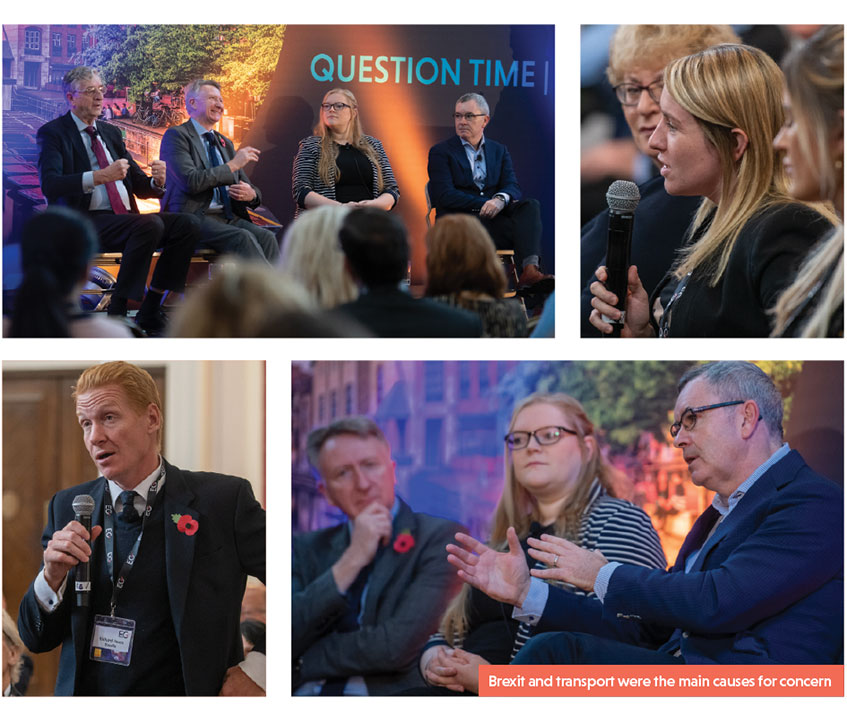
Photographs by Matthew Power Photography
How will Cambridge vote in the General Election?
Ian Sandison: I think it will be very close. Some would say Labour did well last time round due to the student fees issue. Have the Liberal Democrats been forgiven for that? I think it will be either a Labour or a Liberal Democrat candidate. I’m not sure we’ve ever had a Conservative member of parliament in Cambridge. I think Cambridge could go liberal. I’m going to say Liberal Democrat.
Harri John: Jo Swinson has come out with a strong message: give people another choice. A lot of younger people are not happy with Brexit.
David Henry: It will be closely fought between Labour and the Liberal Democrats. However, don’t underestimate the powers of the Green Party. Cambridge is a young constituency and the climate emergency is rising and it is a significant discussion point in this city so it is easy to say Labour or Liberal Democrat when in the middle there is a third group that is quite significant.
Graham Gudgin: While around 15,000 people voted for Brexit in Cambridge, the Tories are a lost cause here so I will put my money on the Liberal Democrats.
The panel
- Dr Graham Gudgin, chief economic adviser, Policy Exchange
- David Henry, director, Savills
- Harri John, co-founder, CREation Property Network
- Ian Sandison, chief executive, Cambridge Bid
- Chaired by Tim Burke, deputy editor, EG
In partnership with: 
To send feedback, e-mail anna.ward@egi.co.uk or tweet @annaroxelana or @estatesgazette







